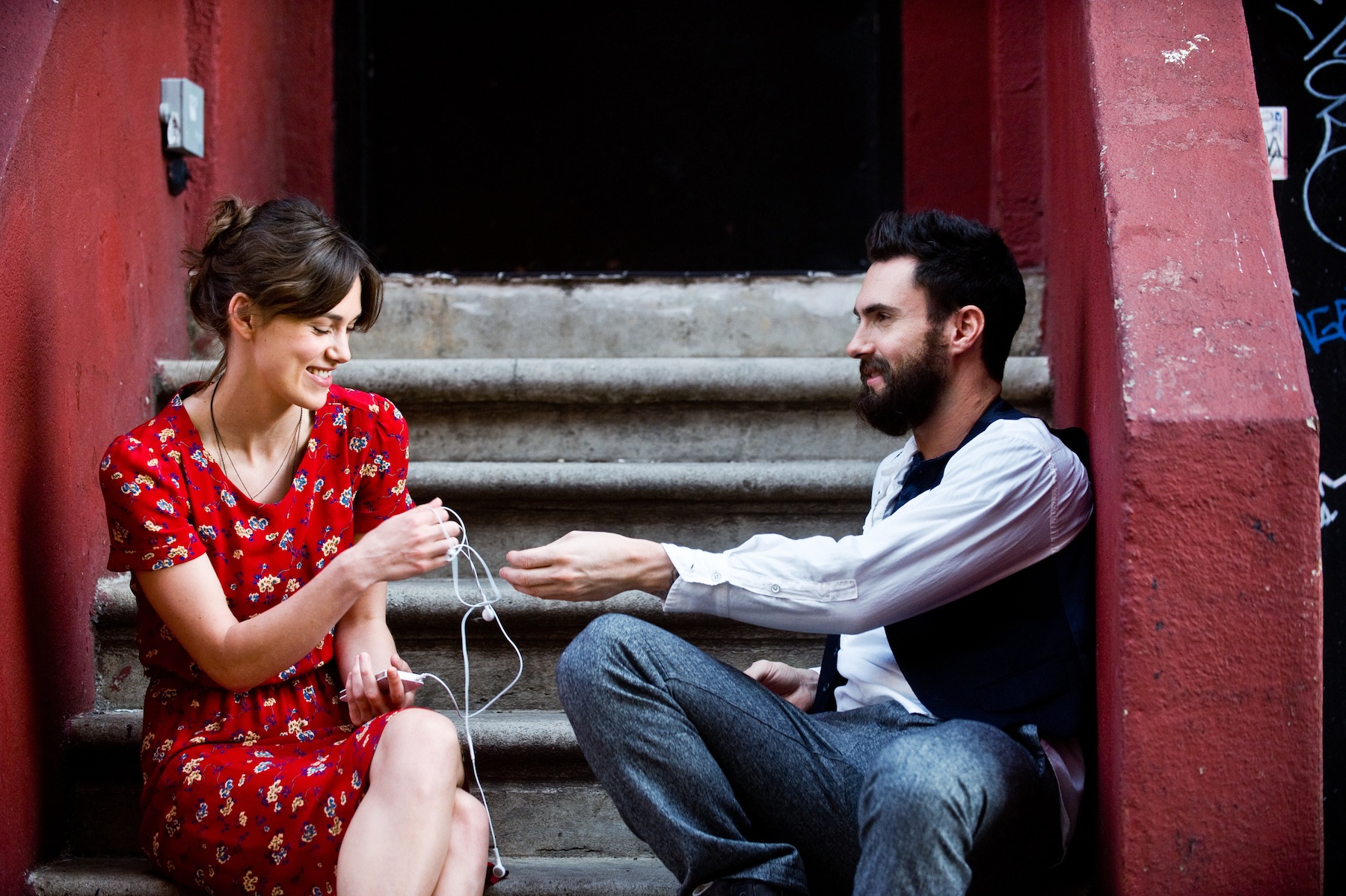
There’s a scene early in John Carney’s new film, Begin Again, which begins its theatrical rollout June 27, in which the characters played by Adam Levine and Keira Knightley arrive in New York City for a meeting with his new record label. He’s just made a successful film featuring his own music. She’s his girlfriend and the songwriter behind much of his man-with-guitar material, except she wasn’t involved in the movie so now she’s just along for the ride. In the scene at the label’s office, an exec tells him that they want to put together an album that will be just like the stuff from the movie.
Begin Again’s audience never gets to see the movie-within-a-movie that gets Levine here — and that provides the starting-point oomph for a film that’s largely a meditation on the effects of fame — but they could be forgiven for guessing what it might be like. After all, Carney is the writer-director behind Once, the 2006 film also about musicians, which became a sensation and sparked a hit soundtrack and a Tony-winning Broadway musical. It’s no coincidence that Begin Again, which is likely to be his biggest film since Once, starts with a premise that sounds like it could have come out of his own life.
“I actually went to lengths to disguise any similarities,” Carney tells TIME. “There was another scene in the movie which was a dead giveaway for the fact that I was borrowing a little bit from my own story and Once and what happened, so I didn’t want to be too overt.”
Despite his attempts to make Begin Again something other than a response to Once — except in its on-set atmosphere, he says, noting that shooting with actual movie stars in a big city made that a little more difficult — that experience of sudden success informs Begin Again. Carney’s own face has stayed out of the spotlight even as his work has gained renown outside his native Ireland, but he says he’s spent much of the past decade observing what happens when “ridiculously positive” reviews start rolling in. When it goes well, he says, you start to feel like everything in your life should go that well, which is inextricable from an inflation of ego. Plus, you get access to people who are even more famous than you are, and you get to watch what happens to them.
“There are definite elements [in Begin Again] of the few people I know who became famous in the last 10 years,” he says. “You’re watching those lives, and even when they’re your friends they’re dinner-party conversations.”
So, after all that, what did Carney learn about fame, and what should audiences take away from his movie about it?
The answer is right there in Begin Again, which he describes as a story about two people with different relationships to the concept. One of the movie’s climactic moments involves a character weighing artistic ideals against the adoration of fans. Carney says the original idea for the scene was scrapped in favor of something subtler, a change that makes it clear there’s maybe not a right answer to that calculation.
“Fame is a test in lots of ways. It calls out who you really are,” he says. Especially for young famous people, who’ve done things out of order by being famous and then having artistic struggles, he says that there’s no way not to be changed by all that attention. He’s also learned that there’s a part of everyone that wants to be famous — and, perhaps not unrelatedly, that it’s good fodder for a movie plot.
“Fame is a very disorienting thing,” he explains, “and very interesting.”
More Must-Reads From TIME
- The 100 Most Influential People of 2024
- The Revolution of Yulia Navalnaya
- 6 Compliments That Land Every Time
- Stop Looking for Your Forever Home
- If You're Dating Right Now , You're Brave: Column
- The AI That Could Heal a Divided Internet
- Fallout Is a Brilliant Model for the Future of Video Game Adaptations
- Want Weekly Recs on What to Watch, Read, and More? Sign Up for Worth Your Time
Write to Lily Rothman at lily.rothman@time.com